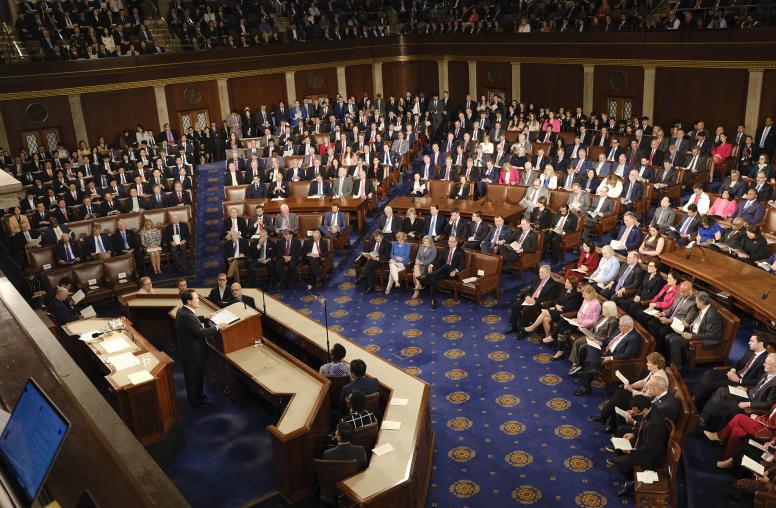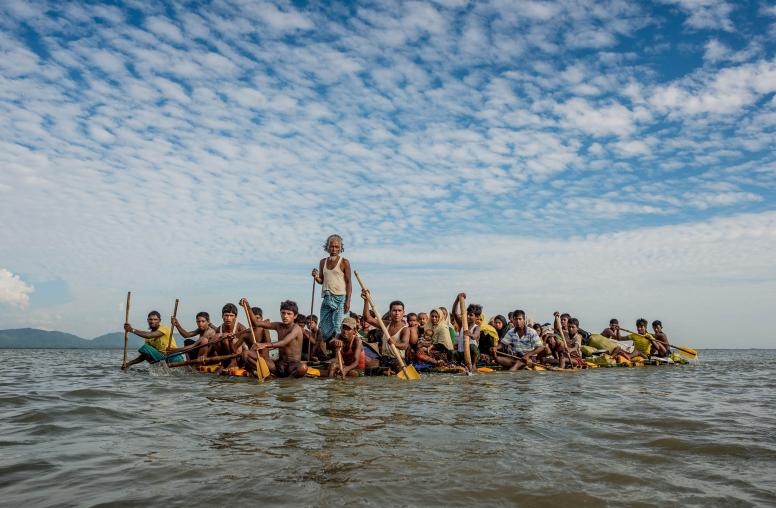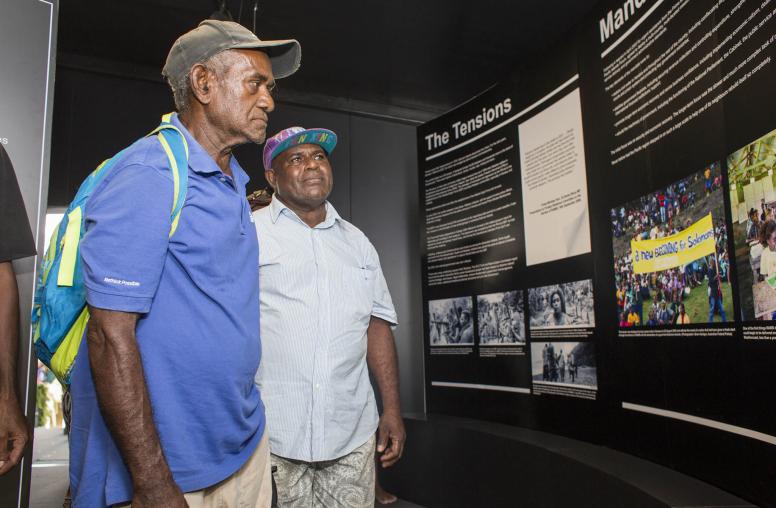Publications
Articles, publications, books, tools and multimedia features from the U.S. Institute of Peace provide the latest news, analysis, research findings, practitioner guides and reports, all related to the conflict zones and issues that are at the center of the Institute’s work to prevent and reduce violent conflict.

Senior Study Group on Counterterrorism in Afghanistan and Pakistan: Final Report
When announcing the US withdrawal from Afghanistan in April 2021, President Joe Biden identified counterterrorism in Afghanistan and Pakistan as an enduring and critical US national security interest. This priority became even more pronounced after the Taliban’s return to power in August 2021, the discovery of al-Qaeda’s leader Ayman al-Zawahiri in Kabul less than a year later, and the increasing threat of the Islamic State of Khorasan (ISIS-K) from Afghanistan. However, owing to the escalating pressures of strategic competition with China and Russia, counterterrorism has significantly dropped in importance in the policy agenda.

Transnational Crime in Southeast Asia: A Growing Threat to Global Peace and Security
Organized crime is a significant driver of conflict globally. It preys on weak governance, slack law enforcement, and inadequate regulation. It tears at the fabric of societies by empowering and enriching armed actors and fueling violent conflict. In Asia, criminal groups prop up corrupt and dangerous regimes from Myanmar to North Korea, posing a direct threat to regional stability.

Jason Tower on the Dangerous Proliferation of Scam Compounds in Southeast Asia
Chinese crime syndicates have set up sophisticated online scamming operations throughout Southeast Asia that rake in an estimated $64 billion a year. Relying on forced labor, the scam compounds “look almost like penal colonies,” says USIP’s Jason Tower, adding: “This is happening on an industrial scale.”

How Congress Can Help Improve Relations with North Korea
Although the Constitution authorizes the president and the executive branch to lead foreign affairs, it also vests the legislative branch with responsibilities that impact the conduct of diplomacy and statecraft. These include the ability to “declare war,” “raise and support armies,” “regulate commerce with foreign nations” and approve treaties and diplomat appointments, as well as general oversight functions and power to appropriate money from the Treasury.

What Does the Xi-Ma Meeting Mean for Cross-Strait Relations?
Chinese leader Xi Jinping held talks on April 10 with former Taiwan president Ma Ying-Jeou in Beijing’s Great Hall of the People. The meeting came as tensions between Beijing and Taipei remain high, particularly following Taiwan’s election at the beginning of the year, which saw pro-sovereignty candidate William Lai Ching-te win a historic third term for the ruling Democratic Progressive Party (DPP). Ma served as president from 2008 to 2016, is a member of the Nationalist (KMT) party and is known for advocating closer ties with mainland China.

Why Counterterrorism in Afghanistan and Pakistan Still Matters
From wars in Ukraine and the Middle East to rising tensions in the South China Sea, there is no shortage of crises to occupy the time and attention of U.S. policymakers. But three years after the U.S. withdrawal from Afghanistan, the threat of terrorism emanating from South Asia remains strong and policymakers need to be more vigilant. Indeed, at the end of March, an Afghanistan-based affiliate of ISIS launched a devastating attack outside of Moscow, killing over 140 people.

Rohingya Face Fresh Uncertainty in Myanmar
An uptick in the conflict between Myanmar’s military and an ethnic armed organization in western Rakhine State is raising new concerns about the fate of the Rohingya population. In 2017, over 800,000 Rohingya, a mostly Muslim community, fled to Bangladesh to escape genocide committed against them by members of Myanmar’s military in Rakhine State. Now, emboldened by the military’s increasing vulnerability in the face of an armed resistance, the Arakan Army has vowed to push aggressively to expand its territorial and administrative control across the state. But its leaders have been unclear about their plans to address the Rohingya issue.

Dean Cheng on China’s New Military Force
China’s military structure is not prone to change. But in a shocking move, Chinese leader Xi Jinping recently established a new military entity focused on “information dominance” in future wars, with many observers “left wondering what this is going to mean and why they did it,” says USIP’s Dean Cheng.

It’s Not Too Late for Solomon Islands’ Truth and Reconciliation Commission
Established in 2008, the Solomon Islands Truth and Reconciliation Commission (TRC) was tasked with investigating the country’s civil conflict that killed 200 people and displaced more than 20,000 others between 1998 and 2003. The commission was the first of its kind in the Pacific Islands region, and its proponents hoped it could heal people’s lasting trauma by addressing human rights violations, promoting national unity and fostering reconciliation.

Despite Daunting Economic Headwinds, Afghan Private Sector Shows Signs of Life
Three years after the Taliban took control of Afghanistan, the country’s economy remains in a dismal state marked by depression-level price deflation, high unemployment and a collapse of GDP. Still, while the bad news for Afghans is well known, less visible are some green shoots in the country’s private sector that, if properly encouraged, could mitigate the situation. These range from small business activity to Taliban plans for major projects to the potential for an uptick in investment. Clearly nothing in those developments can stimulate a strong economic revival.